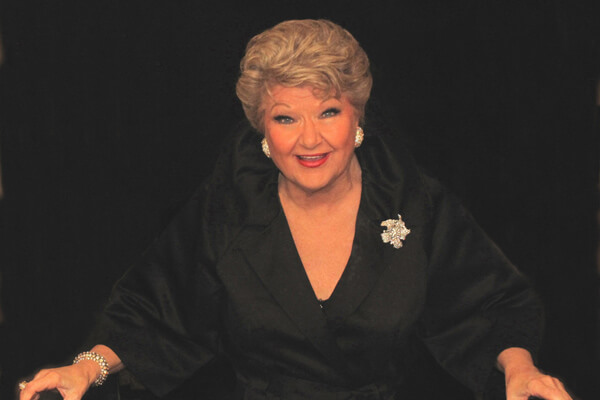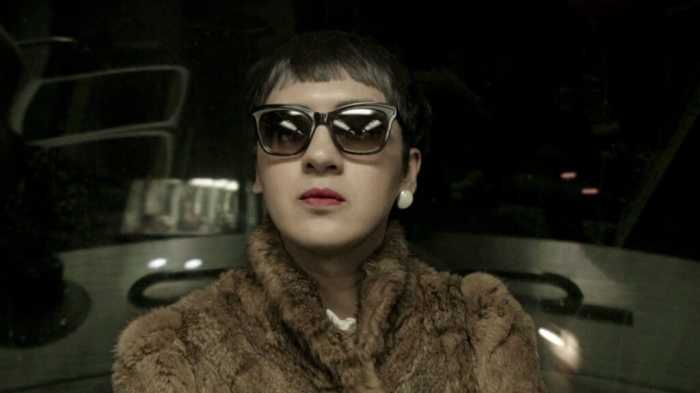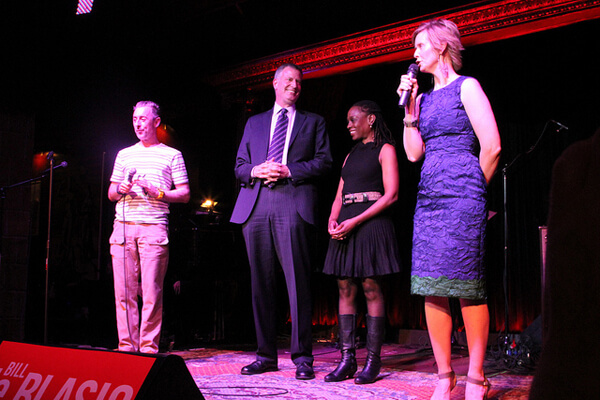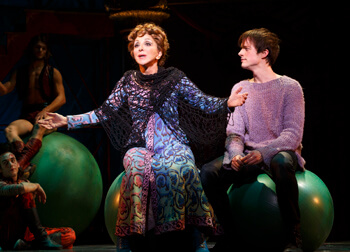Edward Watts is Superman! | HELENE DAVIS PR
BY DAVID NOH | At an early rehearsal for the new Encores! production of “It’s a Bird…It’s a Plane… It’s Superman,” composer Charles Strouse had a huge smile on his face listening to his rarely revived score. Afterwards, he enthused to the leading man, “What a wonderful voice! Where have you been?”
That guy would be Edward Watts, and he’s been right under our noses all this time, starring in “The Fantasticks” and having finished the truncated run of “Scandalous.” The name was not familiar to me and, when I heard he’d been cast as Superman, the inevitable thought was, “He better have the body!” Well, he sure does, as anyone who caught his eye-popping, nearly naked appearance in “Scandalous” can happily attest.
“With both of these roles, it’s a never-ending workout for me,” Watts chuckled when I caught him during the rehearsal. “Some day, I won’t be hired for these roles and then I’ll be able to get to the gym only two or three times a week, but thank you for the genes, Mom and Dad.”
The new Superman, Owen Davis properly revived, Maye time
Watts grew up with the George Reeves TV Superman, but Christopher Reeve remains his strongest impression of the role.
“Christopher had that amazing way of being bumbling and meek and — bam! — he’d turn into Superman. This show is different because of its campy nature. We’re going with the idea that the glasses and the suit are the only difference in him. It’s not meek or the darker version people know now from the recent movies.”
A Midwestern boy, born in Iowa, Watts spent his formative years in Ohio and went to Ohio State University: “I didn’t really know that I wanted to do this in college, but it was lovely there, and I got most of my theater education when I came here in 1993. I found a phenomenal voice teacher, Luba Tcheresky, who I credit for the voice I have today, and trained at the Michael Howard Studio with Daniel Singer.
“It took me a long time to get established as a leading man in my early 20s and it was tough to break in. Although I looked older, I was competing with guys who were seven years older than me, with résumés. So I took survival jobs and got my union card playing Thomas Jefferson in ‘1776’ at the Gateway Playhouse.
“Slowly but sure, I got more jobs and the one that took me to the next level was in the tour of ‘Seven Brides for Seven Brothers,’ and I also got to cover the role of Joey in New York City Opera’s ‘The Most Happy Fella,’ going on for the final performance.
“When I decided no more regional theater, my first Broadway contract came but it closed too early, ‘Finian’s Rainbow,’ as Cheyenne Jackson’s cover. ‘The Fantasticks’ came after and that was a huge deal in terms of people being able to see me, also ‘Saving Amy’ in Seattle,” and then I landed ‘Scandalous.’
“I got to play two roles in that, and the most fun was hearing people congratulate me for playing the Irish guy with my natural hair in Act II, not realizing that I was also the ‘naked guy’ in the first act. With Kathy [Lee Gifford, the show’s writer], I learned just what the idea of being a polarizing figure is. She is what she is — a wonderful person — but people who don’t know her have this vision of her and they despise her and say cruel things.
“I don’t know if that had anything to do with it, or we didn’t have the right fit in terms of the season or enough time to get the word out before the money ran out, but it was shame it closed early. I got the part in the workshop here when the show was going to try out in Seattle. They only kept a few of us, but I had put my stamp on the roles and Kathy said, ‘You’re coming with us. If you’re not going, I’m not going.’
“I’ve done some ‘Today’ shows with her, doing an all-guy advice panel. The guys are comedians, so it’s tough for me to figure out how to get a word in, but they’re a blast. I always have a lot of fun with Hoda [Kotb, Gifford’s co-anchor]. She’s tall and she likes tall guys, so when we were shooting ‘Today’ in Seattle, she had already heard about the ‘naked guy,’ so she said to the others, ‘Bye bye’ and we went into the dressing room and shut the door. I don’t know if they kept that part on the show.
“George Hearn was so humble and thankful to be working again. He’s been retired for a while and doesn’t often leave his upstate New York ranch. He was living nearby me in the city, so after rehearsals we became lovely scotch-drinking buddies. He has so many stories about everyone he’s worked with — a lot of them are bawdy — so after a couple scotches, you’d get an earful!”
Watts recalled playing a sympathetic bartender on a couple episodes of “The Sopranos.”
“[James] Gandolfini was intense, never talked much, and I thought the first day that this guy’s not connecting at all, just does his own thing,” he said. “Then I found out he’d been out late partying and was a little hung over.
“We were sitting in this hotel bar, waiting for them to set up, and he befriended one of the extras. When they called lunch break, he said, ‘Go get lunch for me and my new friend. We’ll be in my trailer, playing chess.’ You think initially that this guy really is Tony Soprano, but he’s actually kinda cool.”
As for being in a relationship, Watts smiled, “Thanks for asking. None. Relationships have been very up and down, like the career, and it’s been a while since I’ve had a longtime girlfriend. I have been sort of exploring that, getting back in the game, but the more you look, the more you won’t find it. A lot of people have tried to set me up, with varying degrees of success.
“I’m a do-it-yourself guy. In my rented apartment, I have a closet filled with tools and any chance I have I build cabinets and butcher-block tops and, recently, a recycling cabinet. I love that and getting out of the city. I’m from the Midwest, an Eagle Scout, so there’s your Superman backstory, a love for outdoors.”
Watts’ dream role hasn’t been written yet.
“I’ve done all these wonderful classical roles like Frank Butler and Harold Hill, and the reviews always mention the original person who’s known for them,” he said. “It would be great 40 years from now to have people remember me as ‘Oh yeah, that guy who played it first.’
“For many years now, very kind friends have said, ‘Any day, now you’re gonna be the guy.’ It’s all very lovely and the months tick by, but sometimes that’s the way it goes. You wait your turn and I certainly think I’m ready and, as you say, have paid my dues. To get this offer made me feel that I have finally gotten to the point where people might be saying, ‘We know your talent and work, and you’re the guy.’”
(“It’s a Bird…It’s a Plane… It’s Superman” runs Mar. 20-24. 131 W. 55th St.; nycitycenter.org.)
Alex Trow and Michelle Eugene in Owen Davis’ 1921 “The Detour.” | KAITLIN REBESCO
Eugene O’Neill can be such a dreary, redundant pain in the ass. There, I said it — a fact brought home to me after seeing Metropolitan Playhouse’s glowing production of Owen Davis’ 1921 “The Detour,” which covers similar ground as O’Neill has — a hard-scrabble country family fighting over money and differing dreams — but with so much more economy and dramatic drive. Smartly directed, designed, and acted, this is a pioneering feminist work about an aspiring girl painter, her miserly father, and her fanatically supportive mother who has echoes of Mama Rose in her fierce maternal ambitions.
This last role was particularly well played by out lesbian actress Michelle Eugene. I love this company — one of my very favorites — for having the sense to revive the work of Davis, who won a Pulitzer for “Icebound,” also wrote the play “Jezebel,” from which the film was adapted, and a brilliant adaptation of “Ethan Frome” that I ache to see.
(“The Detour” runs through Mar. 24 at 220 E. Fourth St., btwn. Aves. A & B; metropolitanplayhouse.org)
Alan Cumming, about to take Manhattan by storm with Liza Minnelli in concerts at Town Hall on March 13 and 14, did Seth Rudetsky’s “Chatterbox” at Don’t Tell Mama on March 7 and was a terrifically open and charming guest. He described a time while playing the Emcee in “Cabaret” when he was struck by scenery during the show, causing a concussion that required him being rushed to the hospital mid-performance. Despite being in a daze and barely able to turn the doorknob to his dressing room, Cumming did have the presence of mind to scrub the swastika tattoo off his rear, so at least he was not left to die in the emergency ward.
Catch Marilyn Maye at 54 Below through March 16 only. | KEITH SHERMAN & ASSOCIATES
Absolute must-sees: Marilyn Maye at 54 Below, who proves that she is unsurpassed as a Great American Songbook interpreter. Well into her 80s, this imperishable songbird, from her smashing, opening Cole Porter medley on, uses her dulcet voice in magical ways, masterfully weaving her way through the music with serpentine grace and tasty jazz accentuation. Added bonus: Ted Firth, scintillating on the piano, our undoubted greatest living cabaret accompanist. (Maye appears through Mar. 16, 254 W. 54th St.; 54below.com.)
Jonathan Cake as Benedick in “Much Ado About Nothing” (seen February 28 at Theater for a New Audience) simply gave one of the greatest performances I’ve ever seen — a total master class in Shakespearean acting. He had the voice, killer timing, dazzling Fairbanksian athleticism, wit, and fervent charm that infused this role — a farcical, soliloquy-laden lighter version of Hamlet — with breathtaking verve. (“Much Ado About Nothing” runs through Apr. 6, 154 Christopher St. at Washington St.; tfana.org.)
The musical queens were peeing in their seats at the New York Philharmonic’s “Carousel” (Feb. 27), and the music was indeed gorgeous. But that book! Kelli O’Hara sweetly did what she could with Julie Jordan, but this has to be the most thankless of roles — a domestic abuse victim and enabler given to likening a blow to a caress. It takes a magically charismatic Billy Bigelow to keep your interest in the darkness at the heart of “Carousel,” but sadly, Nathan Gunn — even though comely as ever — lacked the soaring vocal chops or convincingly mesmerizing low-life approach to bring this difficult part off.
Stephanie Blythe, however, was a totally delightful hoot as Nettie, with her booming voice and comically capacious persona, which easily had you believing she’d consumed 14 clams (and more). Likewise, Shuler Hensley — always in his element as a Rodgers and Hammerstein villain — found actual laughs in his role as Jigger, where I know none existed previously.
“The Broadway Musicals of 1937” (Town Hall, Feb. 11) focused largely on songs from “Babes in Arms” and that was quite all right with me, as that Rodgers and Hart score is chock-a-block with gems. The star performer of the night for me was Stephen DeRosa, who brought sprightly wit to “Way Out West” and heartfelt romance to “I See Your Face Before Me.”
Contact David Noh at Inthenoh@aol.com, follow him on Facebook and Twitter @in_the_noh and check out his blog at http://nohway.wordpress.com.








































